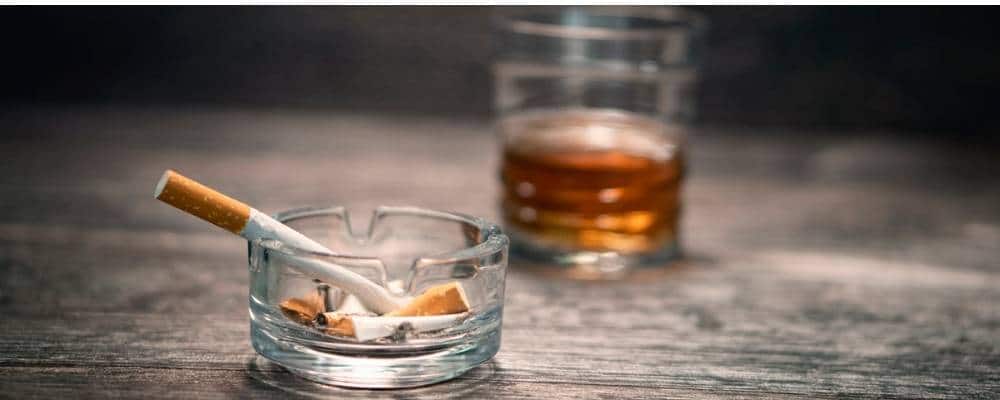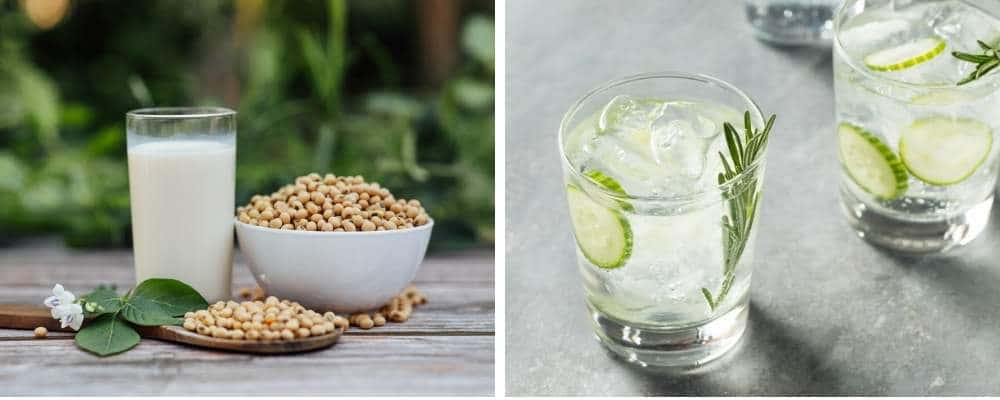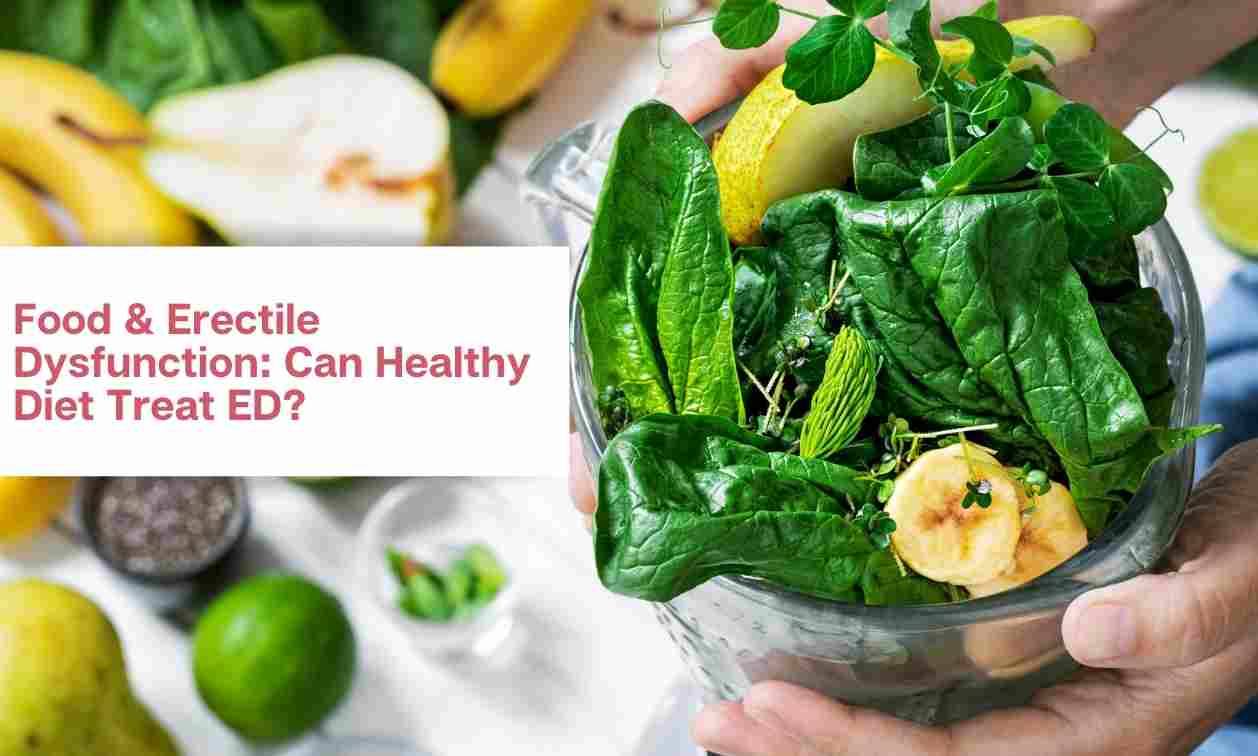
Food for Erectile Dysfunction: Is There Any Cure?
Table of Contents
Erectile dysfunction or ED can occur for a number of reasons, including what you eat.
Statically speaking, 50% of all men have experienced erectile dysfunction at some time or another.
It is true that what you eat could influence ED. But before we discuss how what you eat impacts ED, let’s discuss why ED occurs. There can be many causes of erectile dysfunction or ED.
ED is a complex condition with many possible causes. As men get older, similar to the vessels that feed the heart resulting in heart disease, the blood vessels that feed the erectile tissue of the penis can narrow and become blocked, causing ED. Other causes include:
- Stress, performance anxiety, or other emotional issues
- Certain medications you are taking
- Tobacco use
- Alcohol abuse
- High cholesterol
- Obesity
- Heart disease
- High blood pressure
- Diabetes
- Clogged arteries
- Effects of some cancers
Age-related hormone decline, such as the loss of testosterone and drop in HGH, can also impact a man’s ability to get and maintain an erection suitable for sex.
Can Diet Changes Affect Your Penis?
Healthier food choices could be key to a better sex life and minimizing the occurrence of erectile dysfunction.
Take a look at the list of possible causes for ED above, and you will see several conditions related to a poor diet, such as:
- High cholesterol
- Obesity
- Heart disease
- High blood pressure
- Diabetes
All of the above conditions contribute to ED, and poor diet contributes to all of the conditions. That alone is reason enough to see how what you eat could raise your risk of experiencing regular bouts of ED. But beyond that, there are some very specific foods that you should eat that could help minimize ED and some you should avoid entirely that have been known to increase “trouble in the bedroom.”
There are some very specific foods that you should eat that could help minimize ED and some you should avoid entirely that have been known to increase “trouble in the bedroom.”
Best foods for Erectile Dysfunction
There are foods that are good and foods that are bad for sexual function. Avoid sugary sweets and snacks, highly processed foods, or an excess amount of protein from animal fat. Instead, stick with lean meats and fish.
Beets and beet juice have been called “natural Viagra.” They are a rich source of nitrates that convert to nitric oxide in the bloodstream. But like the real Viagra itself, beet juice is not recommended for men who are taking nitrates for heart disease.
Seafood and Fish – Vitamin D is critical for testosterone production, and healthy testosterone levels are essential to avoid ED. Shellfish are high in vitamin D. Oily fish, such as sardines, mackerel, and salmon, are also rich in vitamin D.
Coconut – Many men, after the age of 40, reduce their consumption of “bad fats” to lose weight and lessen the risk of cardiovascular disease. But low-fat diets can also lead to low testosterone; coconut is a way to add a “good fat” to your diet to boost testosterone production and help avoid ED.
Pumpkin – Pumpkins, and particularly pumpkin seeds, have a lot of zinc. Men with low zinc also tend to be low in testosterone and suffer from ED.
Watermelon – This one might surprise you, but watermelon may be good for not only cooling off your summer days, but for heating up your summer nights! A recent study suggested that citrulline, a nutrient in watermelon, could have a Viagra-like effect.
Berries – Strawberries, and other dark/red berries, such as raspberries and blackberries, also contain powerful antioxidants that can block or reduce the production of cortisol and other testosterone inhibiting hormones.
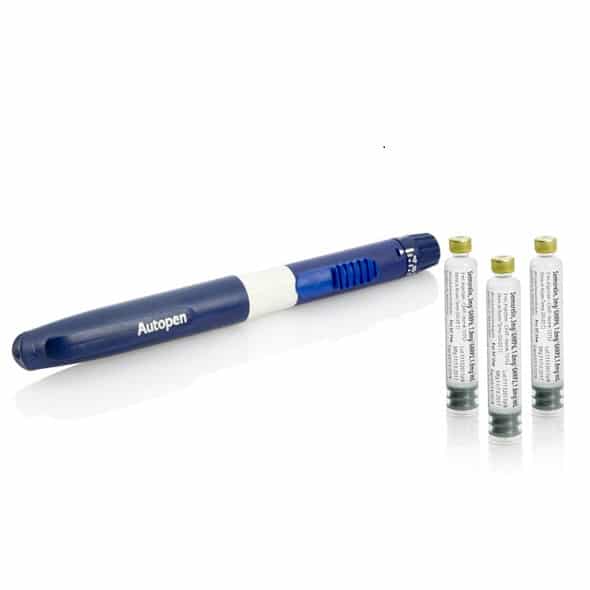
Almonds – Almonds have been said to have aphrodisiac properties for centuries. In many ancient cultures, oils and perfumes made from almonds were used as “love potions.” Recent scientific studies seem to indicate that the ancients were on to something. Almonds are high in Vitamin E and zinc. Zinc is an essential nutrient for hormone production, and has been linked to sex drive in both men and women.
Cruciferous Vegetables – Leafy greens and other cruciferous vegetables, such as broccoli, contain phytochemicals that block or inhibit the production of estrogen. Estrogen in a man’s body lowers your production of testosterone, so these vegetables have a positive impact on testosterone production. Other veggies in this group include: kale, cauliflower, cabbage, Brussels sprouts, and bok choy.
Other foods that have been known to have a positive effect on male performance include:
- Tart Cherries
- Spinach
- Pistachios
- Pomegranate juice
- Oysters
- Figs
- Dark chocolate
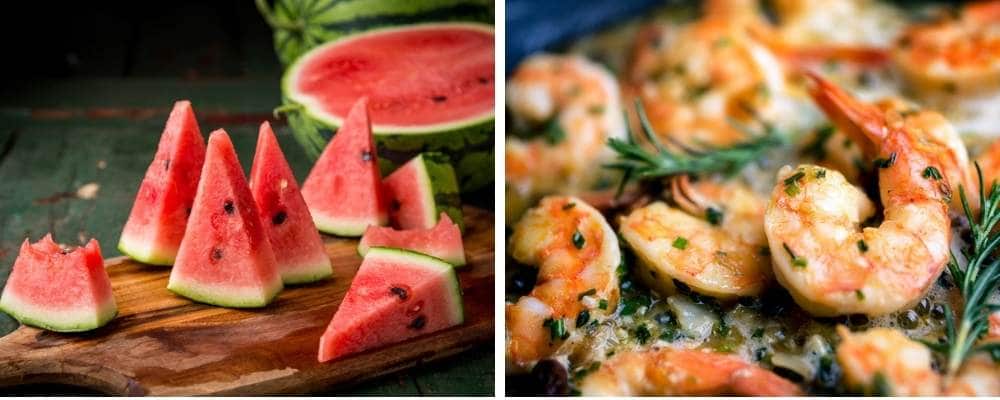
Foods to Avoid for an ED Diet
Generally speaking, eating a “heart-healthy diet,” one that is low in fat and low in junk and processed foods, is also a “penis health diet!” Some other specific foods you want to avoid in order to minimize the risk of ED include:
- Foods high in sugar
- Alcoholic beverages
- Processed meat and foods high in fatty acid
- Fried foods
- Artificial sweeteners
- Soy products
- Flaxseed
- Spearmint
Frequently Asked Questions About Food, Diet, and ED
Which fruit is best for erectile dysfunction?
Watermelon has been called “nature’s Viagra.” There are amino acids in watermelon that have a similar effect as oral ED meds in increasing the levels of nitric oxide, which opens blood vessels and improves blood flow which improves erectile function.
What can I drink to avoid erectile dysfunction?
There has been some research that indicates that coffee can improve sexual function. More importantly than what to drink to help ED — is what NOT to drink. There are beverages that should definitely be avoided as far as ED is concerned.
- Soda – Soda – both regular and diet – is generally bad for your health. It also can be a major mood killer. Avoid soda, particularly diet soda. Artificial sweeteners such as aspartame are known to cause headaches and lower libido.
- Gin and Tonic – This popular cocktail should be avoided, particularly by men. One, for the alcohol, but more importantly, the “tonic” in gin and tonic contains quinine, which is known to reduce testosterone.
- Caffeinated beverages – A little caffeine can be a stimulant, but like alcohol, too much caffeine can let you down. As a stimulant, too much caffeine can increase anxiety, which can lead to performance issues.
- Soy Milk – Men, in particular, should avoid drinking soy milk or any products with soy. Studies have found an association between the consumption of soy with lower sperm counts, decreased semen production, and erectile dysfunction.
Other ways to treat erectile dysfunction
When diet and lifestyle changes are not enough to help your ED, today, there are many medical interventions available. Of course, there are various prescription oral ED medications. Beyond Viagra and related drugs, ED can be treated by:
- Intracavernous Injections – In Intracavernosal therapy, a “Tri-mix” of medications, usually a combination of alprostadil, papaverine, and phentolamine, are self-injected directly into the penis. The needles are very thin, and the injection is virtually pain-free. The medications combine to improve blood flow to the penis.
- MUSE Therapy – MUSE stands for “medicated urethral system for erection“. It involves the use of pellets inserted into the urethra containing the same or similar medications in the Tri-Mix but can be delivered without the use of injections.
- PRP Therapy – PRP, or platelet-rich plasma, is the active ingredient of the P-shot, which is a recent and very popular treatment for ED. PRP uses the healing and growth factors in the patient’s own blood to treat erectile difficulties.
- Acoustic Wave Therapy – Soundwave or shockwave therapies have been used for decades to treat things like breaking up kidney stones or gallstones. In treating ED, the pulsating sound waves break up arterial plaque that has accumulated in the vessels in the penis as well as stimulate their repair, which improves blood flow and your ability to get an erection.
- Hormone Replacement Therapy – As men age, they experience the loss of two hormones critical to your ability to get an erection and perform sexually – testosterone and human growth hormone. Bringing the levels of these hormones back into balance via hormone replacement therapy is an effective treatment to improve sex drive and sexual performance in men.
When to see a doctor about ED?
Only you can answer this question. The best time to see your doctor about ED is as soon as it is impacting your ability to enjoy an active and healthy sex life. The sooner you meet with a medical professional and are willing to talk openly and honestly about erectile dysfunction, the earlier you’ll be able to treat your ED and improve your sexual wellness.
